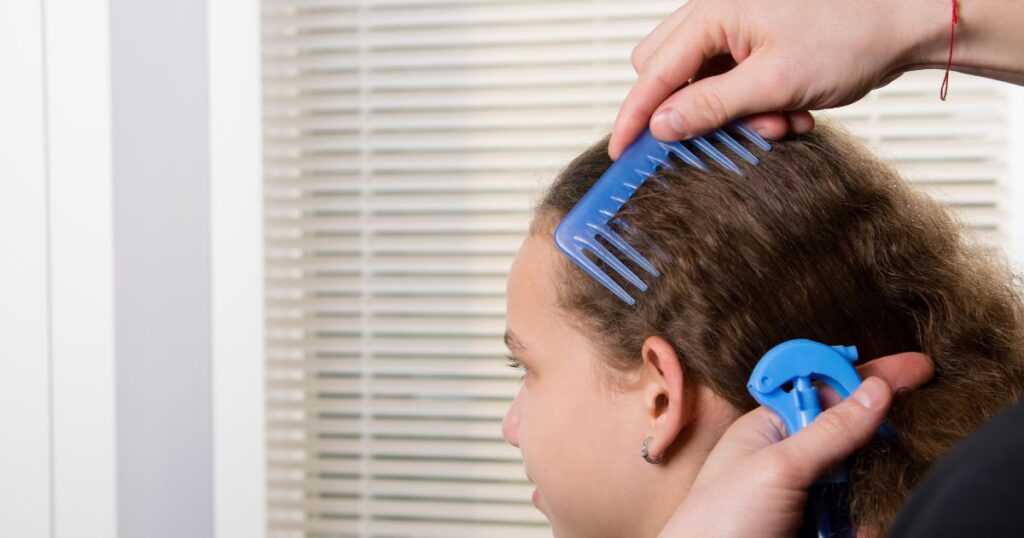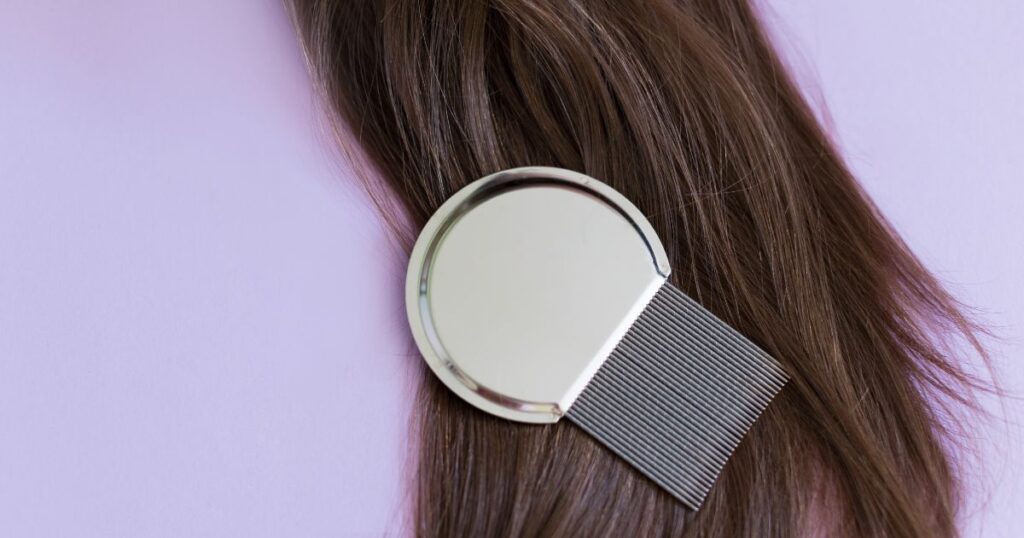Lice have been around for so long that there are many rumors about them! You may have heard several entertaining myths in your lifetime, such as putting petroleum ointment or coconut oil on your scalp will suffocate the lice.
Some of these remedies have a basis in truth, while others will just make sure you spend your money without it benefitting your family. Here is some information about lice, what sort of environment lice thrive in, and what type of hair they prefer.
Risk Factors For Lice
Like most pests, lice spread when there are specific factors that encourage their growth and development. Here are some common risk factors that make it easier to catch lice.
Head-to-Head Contact
Children are more apt to get head lice than babies or adults. Lice are the most common in children from toddlerhood through elementary school.
One of the biggest reasons children are more likely to have lice is because they gather in groups with close contact. For example, if your child attends elementary school, a preschool, a daycare center, or even summer camps, they are more likely to get lice because they are close to dozens of other children. Children often sit close to each other while playing, and they may nap using the same mat or blanket.

Crowded Conditions
Not only is close proximity a factor that determines whether your child or your family will get a lice infestation, but the more crowded it is in their classroom, the more likely lice are to spread. Lice cannot jump, so overcrowding is the perfect place for lice to crawl from head to head.
One reason lice tend to spread so quickly at schools and daycare centers is because there are dozens or hundreds of children in close quarters for long stretches of the day. If your child’s daycare has a smaller student-to-teacher ratio, for example, they are less likely to come home with a lice problem.
What Type of Hair Does Lice Like?
Pediatricians are often asked, “Do lice like clean or dirty hair?” Some people believe that if you don’t wash your child’s hair as often as you should, they won’t get head lice. Of course, a completely different group of people believe the cleaner their child’s hair is, the less likely they are to acquire lice. Here is some information about what types of hair lice prefer.
Do Lice Like Clean Hair?
In general, most researchers believe that lice would rather cling to clean hair because it is easier for them to attach to clean hair. Once they attach to the hair follicle, not only can they find a blood meal, but they can also lay eggs.
Do Lice Like Dirty Hair?
Just because researchers believe that lice like clean hair better than dirty hair does not mean lice will not crawl onto an unwashed head. After all, it is not the cleanliness or filth of hair that attracts the lice in the first place. Lice are attracted to blood, not cleanliness.
Straight Vs. Curly Hair
About 60% of people in the United States have wavy or curly hair, while about 40% have straight hair. Lice do not have a preference when it comes to straight vs. curly hair. Again, they are attracted to blood—not hair type.
Long Vs. Short Hair
Researchers have found some evidence that lice prefer long hair over short hair, but it is not overwhelming evidence. In other words, lice can exist on short hair just as easily as long hair. Some researchers believe that lice prefer longer hair because it is easier for a lice colony to grow larger in long hair.

How to Know You Have Lice in Your Hair
If you are worried that you or one of your children have lice, there are some signs you can look out for. These can give you an indication of a lice issue.
Itching
One of the most obvious signs that your family may have a lice issue is that your head or your children’s head will suddenly become itchy. No matter how hard your child tries not to scratch, the itching will be nearly constant and unbearable.
Red Bumps and Sores
Another indication you or your child may have a lice problem is the appearance of red bumps and sores on the scalp. You are most likely to notice these sores near the nape of the neck or behind the ears. These bumps or sores may indicate that bacteria are getting into the scratched areas, which can eventually cause an infection.
Difficulty Sleeping
If you or your child are having a hard time going to sleep on a nightly basis recently, lice may be to blame. That’s because lice are nocturnal creatures, which means they are more active at night when the lights are out and your family is trying to sleep. If your child’s head was itchy before they went to bed, and the itchiness intensifies at night, lice may be the trouble.

Who to Contact if You Have Lice
Do you suspect that you or a family member have lice? It is nothing to be ashamed of. Lice don’t care where you live, where you work, or how big your house is. If you are worried you have a lice problem, why not reach out to our trained staff at The Lice Clinics? We have treatments available that can rid your family’s hair of lice—guaranteed. Contact us today to make an appointment with one of our clinicians.
